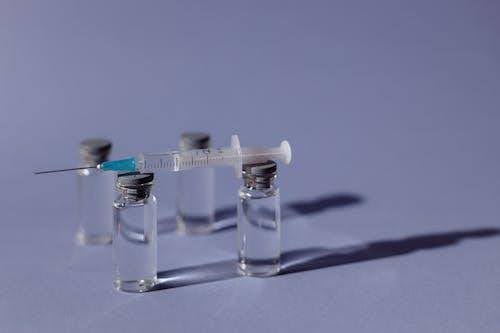Cosmetic surgery, often sought for enhancing physical appearance, sometimes goes differently than planned. While many procedures are successful, there is always a risk of complications that can lead to physical discomfort, emotional stress, and additional medical challenges. Understanding how to deal with these complications effectively is crucial for anyone considering or having undergone cosmetic surgery. This article aims to provide practical guidance on recognizing and managing potential post-surgery issues. From identifying early signs of complications to understanding treatment options and the importance of post-operative care, we will explore key strategies to navigate the often-complex path to recovery and ensure the best possible outcomes.
1. Recognizing the Signs of Complications
Identifying early signs of complications is pivotal in managing post-cosmetic surgery issues. Common indicators include excessive swelling, severe pain, signs of infection (such as redness, heat, or pus), and unexpected changes in the surgical area. Other signs might include fever, unusual discharge, or changes in skin color around the surgical site. Being vigilant and aware of these symptoms allows for prompt action, which is often critical in preventing more severe complications. Patients should be informed about what to expect during the normal healing process and when to seek medical attention, ensuring that any deviations from typical recovery are addressed promptly.
2. Seeking Professional Medical Assistance
In cases of complications such as those involving biopolymers removal, where expert intervention is necessary, prompt action is important. A qualified healthcare provider can accurately assess the situation and determine the best course of action. This may involve returning to the original surgeon or seeking a second opinion. Getting professional help is vital to prevent the escalation of issues and ensure proper treatment. Acting without delay is important, as timely medical intervention can significantly impact the outcome of the situation.
3. Understanding Your Treatment Options
Once a complication has been identified, it’s important to understand the available treatment options. These might range from conservative measures like medication and rest to more aggressive interventions like corrective surgery. The choice of treatment will depend on the nature and severity of the complication. Patients should engage in thorough discussions with their healthcare providers to understand the risks and benefits of each option. Informed decision-making is key, and patients should not hesitate to ask questions or express concerns. Understanding the full scope of potential treatments allows patients to make choices that align with their health goals and personal circumstances.
4. The Role of Post-operative Care
Effective post-operative care is essential in preventing and managing complications. Patients should strictly adhere to the care instructions provided by their surgeon, which may include guidelines on wound care, medication, activity levels, and signs of potential complications. Proper care can significantly reduce the risk of infection, scarring, and other post-surgery issues. Additionally, post-operative care includes attending all scheduled follow-up appointments, as these are critical opportunities for healthcare providers to monitor healing and address any emerging concerns. Patients should also be encouraged to maintain open lines of communication with their medical team throughout the recovery process.
5. Importance of Follow-Up Appointments
Follow-up appointments play a critical role in the recovery process after cosmetic surgery. These check-ups allow surgeons to monitor the healing progress and identify any early signs of complications. They are opportunities for patients to voice any concerns, ask questions, and receive professional advice on their recovery journey. Skipping these appointments can lead to overlooked complications that might worsen over time. It’s essential to adhere to the recommended schedule and keep open communication with your healthcare provider. Regular monitoring and evaluation during these appointments can help ensure a safe and effective recovery, and they provide reassurance to patients that their recovery is on the right track.
6. Managing Pain and Discomfort
Effective management of pain and discomfort is crucial following cosmetic surgery. Appropriate pain management not only aids in a comfortable recovery but can also prevent complications like excessive swelling or stress on surgical sites. Patients should follow their surgeon’s advice on pain medication, including dosage and frequency. Additionally, non-pharmacological methods such as ice packs, gentle exercises, or relaxation techniques can be beneficial. It’s important to communicate openly with healthcare providers about pain levels, as this can indicate the healing progress or the emergence of complications. Proper pain management is integral to the overall recovery process and can significantly impact the quality of healing.
7. Psychological Support and Counseling
Dealing with complications from cosmetic surgery can be emotionally taxing. Psychological support and counseling are vital components of the recovery process. These services provide emotional support, coping strategies, and help in dealing with body image issues that may arise from a botched surgery. Professional counseling can also assist in managing expectations and preparing for any additional treatments. Support groups, where individuals can share their experiences and learn from others in similar situations, can also be beneficial. Prioritizing mental health is as important as physical healing, as it fosters resilience and a positive mindset, crucial for navigating the recovery journey.
8. Learning from Patient Testimonials and Support Groups
Patient testimonials and support groups offer invaluable insights and support for individuals dealing with cosmetic surgery complications. Hearing about others’ experiences can provide practical advice, emotional comfort, and a sense of community. These platforms allow individuals to learn from others who have faced similar challenges, understand what to expect during recovery, and gain tips on managing the process. Support groups can also be a source of encouragement, reminding patients that they are not alone in their journey. Engaging with these communities can empower patients with knowledge and support, aiding in their overall recovery and well-being.
9. Considering Legal Advice in Cases of Malpractice
In cases where cosmetic surgery complications arise from malpractice, considering legal advice is an important step. Legal counsel can guide rights and options and potentially assist in receiving compensation for medical expenses, pain, and suffering. It’s crucial to document all aspects of the surgery and recovery process, as this information can be vital in legal proceedings. Seeking advice from a legal professional specializing in medical malpractice can help patients understand their situation and make informed decisions about pursuing legal action. This step not only addresses individual grievances but can also contribute to higher standards of care in the cosmetic surgery industry.
Conclusion
In conclusion, effectively dealing with cosmetic surgery complications involves a comprehensive approach that addresses both physical and emotional aspects. From the importance of regular follow-up appointments to the value of psychological support and considering legal counsel in cases of malpractice, each step plays a crucial role in the recovery process. Navigating the aftermath of a botched surgery can be challenging, but with the right strategies and support, individuals can emerge stronger and more informed. It’s crucial to remember that recovery is a journey, and taking proactive steps, seeking professional help, and staying informed is key to successfully overcoming the hurdles of cosmetic surgery complications.



